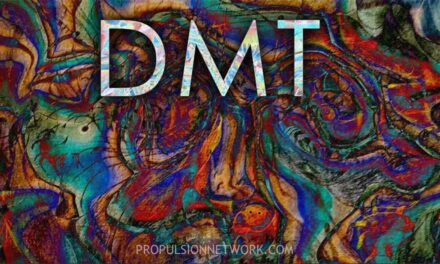What is MDMA? ENGLISH
What is MDMA?
(3,4-Methylenedioxymethamphetamine) better known as Ecstasy, cross out, babe, tablet, crystal, ice, M. It belongs to the group of phenethylamines and amphetamines, it is a fairly powerful stimulant with several unique properties. The most common way to synthesize it is through safrole, an oil found in a wide variety of plants, roots and seeds. It was accidentally synthesized in 1912, but the first scientific communication on the physiological effects in humans dates from 1976 and is due to the chemist, pharmacologist and psychonaut Alexander Shulgin. Its presentations are mainly pills or tablets (studs), capsules, powder or crystals.
What are its effects?
MDMA increases the levels of serotonin and other neurotransmitters such as norepinephrine and dopamine. It causes a feeling of emotional openness and affective identification with other people (empatogenesis), as well as the subjective feeling of being at peace or in a state of happiness (entactogenesis). The process that accomplishes this also distorts the senses, things seem to feel better, to be heard better, colors shine brighter and flavors change. Increasing the dose can cause anxiety and paranoia, thus adversely affecting the ability to socialize with others.
Other possible physical effects include dry mouth, locked jaw, dilated pupils, and sweating or nausea. The effects of MDMA can come to resemble other amphetamines by causing a fast heartbeat, dizziness, and poor sleep.
What are your risks?
A pill usually contains between 80 and 100 mg. of MDMA. Taking more than 200 milligrams can result in an overdose, characterized by rapid heartbeat, hypertension and increased body temperature, can lead to nervous breakdown or cardiovascular complications.
It is relatively common to inhale MDMA. If you do, make sure it is well pulverized so as not to damage your nasal septum and do not share the straws.
Also, it is common for MDMA to be adulterated, although there is a possibility that it is only adulterated with caffeine, pills adulterated with piperazines, lidocaine, ketamine, methamphetamines, amphetamines, PCP, DDT, MMDA and MDA have occasionally been found. All of these substances can put your health at risk and cause effects that are very different from what is expected from MDMA.
Frequent use of MDMA can cause long-term declines in brain functions including those involving serotonin, leading to anxiety, depression, irritability, or paranoia. MDMA increases blood pressure. If you suffer from heart conditions or circulation problems, DO NOT consume them. Additionally, consuming MDMA while taking monoamine oxidase inhibitor antidepressants (MAOIs) can lead to death.
Is MDMA Addictive?
Although MDMA causes an adaptation of the body and the serotonergic systems of the brain are strongly modified with chronic use, even if this occurs only on weekends, which can lead to a “withdrawal syndrome”, which includes depression and various disorders organic and psychological that can become permanent. Due to the link between serotonin and the processes of psychological pleasure and well-being, MDMA causes strong psychological dependencies.
Legality
Under the international regulatory framework, Mexican laws and specifically the General Health Law, MDMA is considered an illegal narcotic and its distribution and production is considered a crime. Remember that carrying amounts greater than 40 milligrams in powder or glass or a tablet weighing more than 200 mg or buying for various friends can land you in jail under the charge of drug dealer. Be careful!
Damage reduction
Taking MDMA with any other substance that increases or decreases the heart rate can lead to cardiovascular problems or pressure-related discomfort.
The shorter the intervals, the greater the impact on the body, it is best to let at least a few weeks pass between consumptions.
Do not mix MDMA with other substances and it is better to use small doses
MDMA causes body dehydration and this increases when you are dancing. It is important that you stay hydrated and do not substitute water for alcohol
It is common to increase tobacco use during the effect of MDMA. It is recommended that you regulate your dose of tobacco to reduce the risk of irritation or ulceration of the mouth and throat.
Taking antioxidants (such as vitamin C) can help reduce sudden swings in serotonin levels during and after travel. You can take it in concentrate or eat fruits rich in vitamin C such as oranges, lemons, plums, cherries, apples, etc.
DO NOT DRIVE or do activities that could put your life or that of others at risk. MDMA, like most psychoactive substances, causes alterations in coordination and reduces the ability to perform tasks that require concentration
MDMA is heavy on the stomach. If you are going to take it, do it after a soft meal and do not consume other irritants, especially alcohol. There is no problem with using antacids or anti-nausea.
The effects of MDMA can create pleasurable sensations that can easily be turned into sexual stimulation.
Remember to always be protected and carry condoms with you, use them for every sexual relationship regardless of whether your partner is close or unknown. Sex under the influence of MDMA can become hectic and intense, which is why it is important to change the condom regularly and use a lot of lubricant.
¿Qué es la MDMA?
(3,4-Metilendioximetanfetamina) mejor conocida como Éxtasis, tacha, nena, comprimido, cristal, hielo, M. Pertenece al grupo de las fenetilaminas y de las anfetaminas, es un estimulante bastante potente con varias propiedades únicas. La manera más común de sintetizarla es por medio del safrol, un aceite que se encuentra en una gran variedad de plantas, raíces y semillas. Se sintetizó de manera accidental en 1912, pero la primera comunicación científica sobre los efectos fisiológicos en seres humanos data de 1976 y se debe al químico, farmacólogo y psiconauta Alexander Shulgin. Sus presentaciones son principalmente pastillas o tabletas (tachas), cápsulas, polvo o cristales.
¿Cuáles son sus efectos?
La MDMA incrementa los niveles de la serotonina y otros neurotransmisores como la noradrenalina y dopamina. Provoca una sensación de apertura emocional e identificación afectiva con otras personas (empatogénesis), así como la sensación subjetiva de estar en paz o en un estado de felicidad (entactogénesis). El proceso que logra esto también distorsiona los sentidos, las cosas parecen sentirse mejor, escucharse mejor, brillan más los colores y cambian los sabores. Subir la dosis puede producir ansiedad y paranoia, por lo que afecta de manera contraproducente la capacidad de socializar con los demás.
Otros posibles efectos físicos incluyen la resequedad de la boca, mandíbula trabada, pupilas dilatadas y sudoración o náusea. Los efectos del MDMA pueden llegar a parecerse a los de otras anfetaminas causando pulso cardiaco acelerado, mareo y falta de sueño.
 ¿Cuáles son sus riesgos?
¿Cuáles son sus riesgos?
Una pastilla suele contener entre 80 y 100 mg. de MDMA. Tomar más de 200 miligramos puede resultar en una sobredosis, caracterizada por taquicardias, hipertensión y aumento de la temperatura corporal, puede llevar a un colapso nervioso o complicaciones cardiovasculares.
Es relativamente común inhalar MDMA. Si lo haces, asegúrate de que se encuentre ben pulverizada para no dañar tu tabique nasal y no compartas los popotes.
Además, es común que la MDMA esté adulterada, aunque existe la posibilidad de que solo esté adulterada con cafeína, en ocasiones se han encontrado pastillas adulteradas con piperazinas, lidocaína, ketamina, metanfetaminas, anfetaminas, PCP, DDT, MMDA y MDA. Todas estas sustancias pueden poner en riesgo tu salud y provocar efectos muy diferentes a lo que se espera del MDMA.
Consumir con frecuencia MDMA puede producir disminución de larga duración en las funciones cerebrales incluyendo aquellas que involucran a la serotonina, produciendo ansiedad, depresión, irritabilidad, o paranoia. La MDMA aumenta la presión arterial. Si padeces afecciones del corazón o problemas de circulación, NO las consumas. Además, consumir MDMA mientras se están tomando antidepresivos inhibidores de la monoamino oxidasa (IMAO’s) puede ocasionar la muerte.
¿La MDMA es adictiva?
Aunque la MDMA provoca una adaptación del organismo y los sistemas serotoninérgicos del cerebro se modifican fuertemente con el uso crónico, aún si este ocurre sólo en fines de semana, lo que puede llevar a un “síndrome de abstinencia”, que incluye depresión y distintos trastornos orgánicos y psicológicos que pueden llegar a ser permanentes. Debido al vínculo que existe entre la serotonina y los procesos de placer y bienestar psicológicos, el MDMA provoca fuertes dependencias pxicológicas.
Legalidad
Bajo el marco regulatorio internacional, las leyes mexicanas y específicamente la Ley General de Salud, la MDMA está considerada como un narcótico ilegal y su distribución y producción se considera un delito. Recuerda que portar cantidades mayores a 40 miligramos en polvo o cristal o una tableta con un peso mayor a 200 mg o comprar para varixs amigxs puede llevarte a la cárcel bajo el cargo de narcomenudista. ¡Ten cuidado!
Reducción de daños
- Consumir MDMA con cualquier otra sustancia que aumente o disminuya el ritmo cardiaco puede significar problemas cardiovasculares o malestar relacionado con la presión.
- Mientras más cortos los intervalos es mayor el impacto al organismo, lo mejor es dejar pasar al menos unas semanas entre consumos.
- No mezcles MDMA con otras sustancias y es mejor usar dosis pequeñas
- La MDMA provoca deshidratación corporal y ésta se incrementa cuando estás bailando. Es importante que te mantengas hidratadx y que no sustituyas el agua por el alcohol
- Es común aumentar el consumo de tabaco durante el efecto del MDMA. Se recomienda que regules tu dosis de tabaco para reducir el riesgo de irritaciones o ulceraciones de boca y garganta.
- Tomar antioxidantes (como la vitamina C) puede ayudar a reducir los cambios bruscos de los niveles de serotonina durante y después del viaje. Puedes tomarlo en concentrado o comer frutas ricas en vitamina C como naranjas, limones, ciruelas, cerezas, manzanas, etc.
- NO MANEJES ni realices actividades que puedan poner en riesgo tu vida o la de los demás. La MDMA, como la mayoría de las sustancias psicoactivas, genera alteraciones en la coordinación y disminuye la capacidad para realizar tareas que requieran concentración
- La MDMA es pesada para el estómago. Si la vas a tomar hazlo después de una comida suave y no consumas otros irritantes, especialmente alcohol. No hay problema con usar antiácidos o antináuseas.
- Los efectos de la MDMA pueden generar sensaciones placenteras que fácilmente se pueden convertir en estimulación sexual.
Recuerda siempre estar protegido y cargar condones contigo, úsalos para cada relación sexual sin importar si tu compañero/a es cercano o desconocido. El sexo bajo los efectos de la MDMA se puede volver agitado e intenso por los que es importante cambiar regularmente el condón y usar mucho lubricante.

















